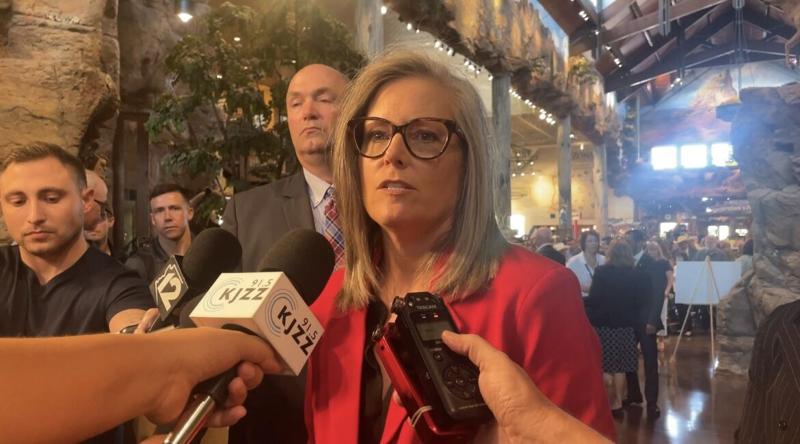(The Center Square) – Arizona Gov. Katie Hobbs said that her administration has not reached out to anybody that they would like to see fill the upcoming state Supreme Court vacancy.
“We’re looking for someone who is committed to the independence of the court, and we have not specifically reached out to anyone,” Hobbs said at a media availability on Thursday.
However, the choice will ultimately be hers to make.
The Center Square reported that applications for the vacancy will close on Nov. 1, and the Commission on Appellate Court Appointments will have 60 days afterward to give Hobbs three names to decide from.
Justice Robert Brutinel announced last month that he is retiring on Oct. 31, on the eve of possible election-related litigation in the Grand Canyon State. Brutinel was appointed by former Republican Gov. Jan Brewer in 2010, and this will be Hobbs’ first appointment to the court.
“The decision to leave the court has not been easy and | will greatly miss the Court’s interesting and challenging ‘work and particularly all the wonderful people with whom I have had the pleasure of working,” Brutinel said in his retirement letter. “Working in Arizona’s courts for the past 28 years has been a tremendous privilege. Arizona’s judicial system, at all levels, enjoys a reputation both nationally and internationally of excellence and innovation. I cannot adequately express how thankful I am for the opportunity to have served as a part of Arizona’s judiciary.”
The court came into national focus in the spring when it ruled 4-2 that a stay could be lifted on an 1864 abortion law that was re-codified in 1977 which would have made abortion illegal in nearly all circumstances.
Hobbs signed a repeal bill into law weeks later, and now the 15-week law signed in 2022 by Ducey remains in effect. Still, an abortion proposition on the ballot in November could expand abortion access in the state to “fetal viability” and possibly beyond that timeframe in some cases, critics argue.
Two of those justices who decided the case – Clint Bolick and Kathryn King – are also on the ballot this cycle, which occurs every six years unless another proposition on the ballot gets rid of retention elections.






